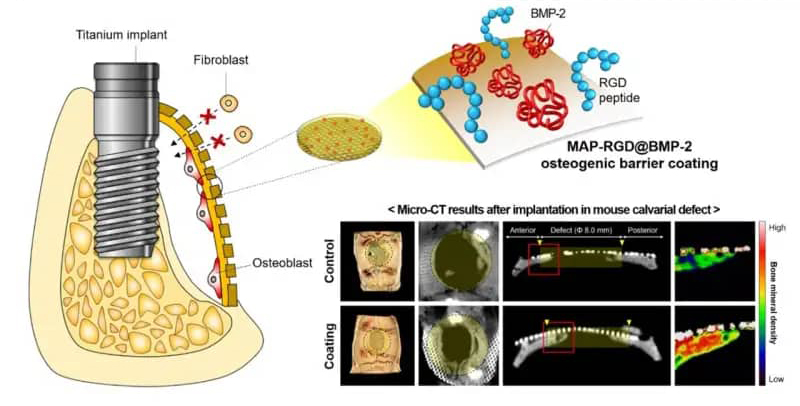
A team of Korean researchers from Pohang University of Science and Technology (POSTECH) and their collaborators have developed an advanced coating material for dental implants that significantly accelerates alveolar bone regeneration. This innovative material uses mussel adhesive protein (MAP) combined with the RGD peptide, which attracts bone stem cells and provides sustained release of bone morphogenetic protein-2 (BMP-2).
One of the major challenges in dental implants is insufficient alveolar bone, which can compromise the long-term success of the implant. Conventional methods for bone regeneration (GBR) are often time-consuming and not always effective, especially in patients with poor bone quality. However, this new coating enhances bone growth by preventing the interference of non-osteogenic cells, like fibroblasts.
The researchers tested the osteogenic barrier coating on a titanium mesh membrane and discovered that it had excellent adhesiveness in wet conditions and effectively blocked unwanted cells. The experiments also showed that the material promoted rapid growth and differentiation of mesenchymal stem cells, accelerating bone formation within the membrane.
In a rat calvarial defect model, the MAP-based coating nearly doubled the rate of bone tissue regeneration. This suggests that the technology could make dental implant treatments faster and more effective, particularly for patients with insufficient bone, by reducing the overall treatment time.
Professor Hyung Joon Cha, who led the research, emphasized that this bone regeneration method could improve the success rate of dental implants regardless of bone condition. He also highlighted the potential of this coating to be adapted for regenerating other types of hard tissues, paving the way for broader medical applications in the future.

